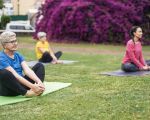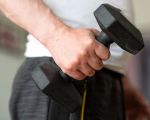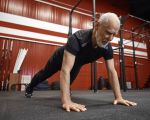- 1 - Importance-of-recovery
- 2 - Nutrition-for-recovery
- 3 - Hydration-strategies
- 4 - Rest-and-sleep
- 5 - Active-recovery-methods
- 6 - Mental-recovery-techniques
- 7 - Case-study-on-recovery-success
1. The Importance of Recovery After Intense Fitness Sessions
Recovery is a critical component of any fitness regimen, especially after intense sessions that push the body to its limits. Without proper recovery, muscles remain fatigued, performance plateaus, and the risk of injury increases. Fitness recovery tips after intense sessions help athletes and fitness enthusiasts reduce muscle soreness, repair damaged tissues, and replenish energy stores. Understanding the science behind recovery empowers you to optimize your workouts and achieve long-term fitness goals.
After a demanding workout, the body undergoes microscopic muscle tears and depletes glycogen reserves. Recovery allows these muscles to repair and strengthen, a process known as supercompensation. Neglecting recovery can lead to overtraining syndrome, characterized by persistent fatigue, decreased performance, and mood disturbances. Thus, integrating recovery strategies is as important as the workout itself for sustained progress.
2. Nutrition Plays a Vital Role in Post-Workout Recovery
One of the most effective fitness recovery tips after intense sessions is proper nutrition. Consuming a balanced meal or snack rich in protein and carbohydrates within 30 to 60 minutes after exercise supports muscle repair and glycogen replenishment. Protein provides amino acids essential for muscle synthesis, while carbohydrates restore energy levels.
For example, a study published in the Journal of the International Society of Sports Nutrition highlighted that ingesting 20-40 grams of high-quality protein post-workout significantly enhances muscle protein synthesis. Combining this with complex carbs like sweet potatoes or whole grains can accelerate recovery and reduce next-day soreness.
Additionally, incorporating antioxidants from fruits and vegetables can mitigate inflammation caused by intense exercise. Supplements like branched-chain amino acids (BCAAs) and omega-3 fatty acids have also shown promise in supporting recovery, but consulting with a nutritionist can help tailor these to individual needs.
3. Hydration Strategies to Support Efficient Recovery
Rehydrating after an intense fitness session is crucial for restoring fluid balance and supporting metabolic processes. Sweating during exercise leads to significant fluid and electrolyte loss, which if unaddressed, can impair muscle function and delay recovery.
Experts recommend drinking water or electrolyte-enhanced beverages soon after workouts to replace lost fluids. Monitoring urine color can be a practical way to assess hydration status, with pale yellow indicating adequate hydration. For endurance athletes or sessions lasting longer than 90 minutes, beverages containing sodium, potassium, and magnesium can be particularly beneficial.
Interestingly, a case involving a marathon runner who failed to hydrate adequately post-race resulted in prolonged muscle cramps and delayed recovery, emphasizing the vital role hydration plays in post-exercise healing.
4. Prioritizing Rest and Quality Sleep for Muscle Repair
Rest and sleep are fundamental recovery pillars often overlooked in fitness circles. During deep sleep stages, the body releases growth hormone, which facilitates muscle repair and regeneration. Lack of sufficient rest can undermine your fitness progress, increase injury risk, and weaken immune function.
To maximize recovery, aim for 7 to 9 hours of uninterrupted sleep per night. Establishing a consistent sleep routine, minimizing screen exposure before bedtime, and creating a comfortable sleep environment can improve sleep quality. For those training intensely, incorporating short naps during the day can also support recovery.
Fitness experts frequently stress that no amount of training can compensate for poor sleep, making it an indispensable aspect of any recovery plan.
5. Active Recovery Techniques to Reduce Muscle Soreness
Contrary to complete rest, active recovery involves low-intensity exercises such as walking, swimming, or yoga on rest days. These activities increase blood flow to muscles, facilitating nutrient delivery and waste removal, which helps reduce soreness and stiffness.
Studies demonstrate that active recovery can significantly decrease delayed onset muscle soreness (DOMS) compared to passive rest. Techniques like foam rolling and stretching also improve flexibility and muscle relaxation.
A personal anecdote from a competitive cyclist revealed that incorporating gentle swimming sessions post-intense rides led to quicker recovery and better overall performance, underscoring the practical benefits of active recovery.
6. Mental Recovery: Managing Stress and Enhancing Motivation
Fitness recovery tips after intense sessions extend beyond the physical to include mental recovery. Intense training can induce psychological fatigue, stress, and burnout if not managed properly. Techniques such as meditation, deep breathing exercises, and mindfulness can alleviate mental stress and improve focus.
Maintaining a positive mindset and setting realistic goals also play key roles in sustaining motivation during recovery phases. Support from coaches or fitness communities can provide accountability and encouragement, fostering a balanced approach to training and rest.
Research from the American Psychological Association supports that mental recovery techniques enhance not only emotional well-being but also physical recovery outcomes.
7. Case Study: Successful Recovery Approach for Intense Training
Consider the story of Sarah, a marathon runner who struggled with chronic fatigue and muscle pain after ramping up her training intensity. By adopting a comprehensive recovery plan incorporating nutrition optimization, hydration, improved sleep hygiene, active recovery, and mindfulness techniques, Sarah saw a remarkable turnaround. Within weeks, her soreness diminished, energy levels surged, and race times improved.
This example highlights how integrating multiple fitness recovery tips after intense sessions creates synergy, resulting in more efficient healing and enhanced athletic performance. For personalized advice or to explore recovery tools and supplements, Fitness offers a curated selection of products and expert guidance tailored to your unique fitness journey.








